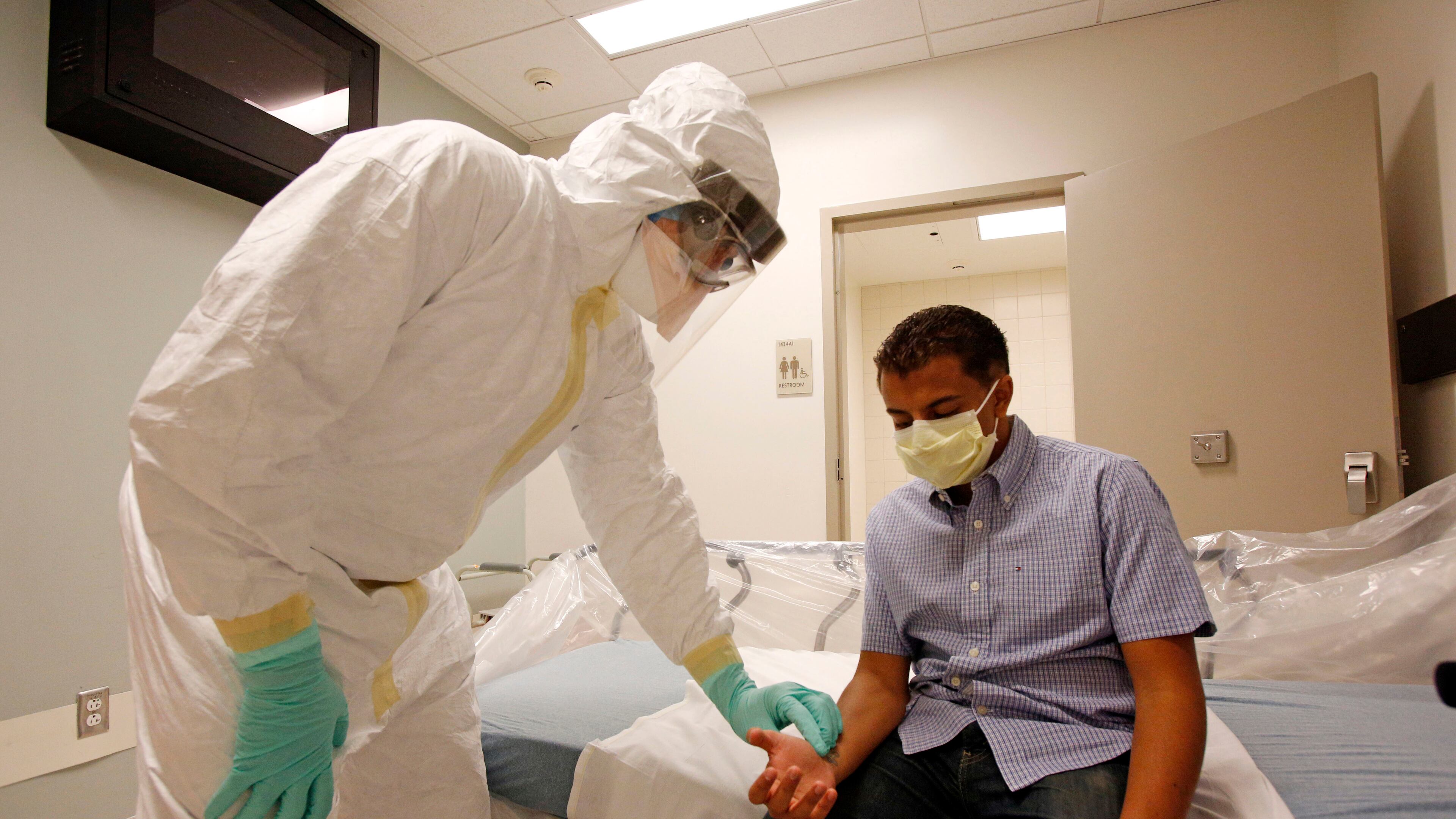Some things everyone should know about Ebola

A: Health care workers, because they are likely to come in contact with blood or other bodily fluids of patients.
Q: What should I do if I have symptoms?
A: Seek medical care immediately if you develop a fever of 101.5 and any of these symptoms: headache, muscle pain, diarrhea, vomiting, stomach pain, or unexplained bruising or bleeding. Tell your doctor about recent travel and your symptoms before you go to the office or emergency room. With advance notice, doctors can protect others who may be in the office or in the area, in case you are diagnosed with Ebola.
Q: How long is a patient contagious?
A: The incubation period to show symptoms is two to 21 days. The average is eight to 10 days.
Q: When can an infected person spread Ebola?
A: It only spreads when someone is sick — that is, displaying symptoms. Then, it can be spread through contact with objects such as clothes, bedding, needles, syringes/sharps or medical equipment that have been contaminated with the virus.
Q: What about animals?
A: Ebola can be spread through contact with infected animals — infected bats or handling bushmeat from wild animals hunted for food in Africa.
Q: What about the dog that was euthanized in Spain for potentially carrying Ebola?
A: From CDC Director Tom Frieden: "There is one article in the medical literature that discusses the presence of antibodies to Ebola in dogs. Whether that was an accurate test and whether that was a relevant test, we don't know, but we want to look at all possibilities.
“We have not identified this as a means of transmission. We do know in rural areas of Africa, that Ebola can infect mammals. In fact, that’s how it spreads, from probably bats to animals living in the forest, people hunting the animals. When they hunt the animals and prepare them for serving, they may become infected from the food that is involved. We don’t think this would be a means of transmission, and I can’t comment on the specifics of Spain.”
Q: What are the symptoms?
A: Early symptoms include headache, sudden fever, fatigue, muscle pain and sore throat. Those are followed by vomiting, diarrhea, rash, impaired kidney and liver function and, in some cases, internal and external bleeding (oozing from the gums, blood in stools).
Q: How big can the outbreak in West Africa become?
A: The Centers for Disease Control and Prevention has said that in a worst-case scenario, cases could reach 1.4 million in four months. The centers’ model is based on data from August and includes cases in Liberia and Sierra Leone, but not Guinea (where counts have been unreliable).
Q: Is it always fatal?
A: No. In the current West African outbreak, 1 in 2 have died. A total of 3,865 patients have died as of Oct. 9. Authorities report 4,461 of a total 8,033 cases were laboratory confirmed.
Q: What is the cure?
A: There is no cure. But supportive care, including hydration, greatly improves the chances of survival. Two possible vaccinations are being evaluated.
Q: Can people be re-infected?
A: Those who recover from Ebola develop antibodies that last for at least 10 years.

